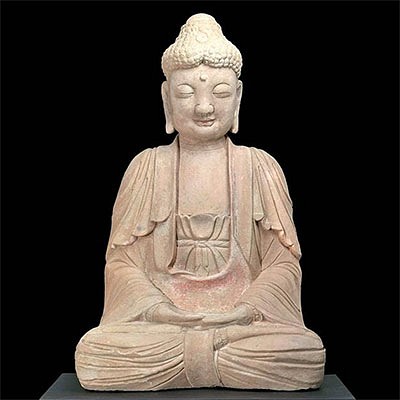Early 19th C. Austrian Painted Glass Vase Hunting Scene
Lot 156c
About Seller
Artemis Gallery
686 S Taylor Ave, Ste 106
Louisville, CO 80027
United States
Selling antiquities, ancient and ethnographic art online since 1993, Artemis Gallery specializes in Classical Antiquities (Egyptian, Greek, Roman, Near Eastern), Asian, Pre-Columbian, African / Tribal / Oceanographic art. Our extensive inventory includes pottery, stone, metal, wood, glass and textil...Read more
Categories
Estimate:
$3,000 - $4,500
Absentee vs Live bid
Two ways to bid:
- Leave a max absentee bid and the platform will bid on your behalf up to your maximum bid during the live auction.
- Bid live during the auction and your bids will be submitted real-time to the auctioneer.
Bid Increments
| Price | Bid Increment |
|---|---|
| $0 | $25 |
| $300 | $50 |
| $1,000 | $100 |
| $2,000 | $250 |
| $5,000 | $500 |
| $10,000 | $1,000 |
| $20,000 | $2,500 |
| $50,000 | $5,000 |
| $100,000 | $10,000 |
| $200,000 | $20,000 |
About Auction
By Artemis Gallery
Feb 18, 2021
Set Reminder
2021-02-18 10:00:00
2021-02-18 10:00:00
America/New_York
Bidsquare
Bidsquare : Exceptional Antiquities, Asian, Ethnographic
https://www.bidsquare.com/auctions/artemis-gallery/exceptional-antiquities-asian-ethnographic-6373
Museum-worthy examples of Egyptian, Greek, Roman, Etruscan, Near Eastern, Far East / Asian, Pre-Columbian, African / Tribal, Oceanic, Native American, Spanish Colonial, Russian, Fossils, Ancient Jewelry, Fine Art, so much more! Artemis Gallery info@artemisgallery.com
Museum-worthy examples of Egyptian, Greek, Roman, Etruscan, Near Eastern, Far East / Asian, Pre-Columbian, African / Tribal, Oceanic, Native American, Spanish Colonial, Russian, Fossils, Ancient Jewelry, Fine Art, so much more! Artemis Gallery info@artemisgallery.com
- Lot Description
Central Europe, Austria, Biedermeier period, ca. first quarter of the 19th century CE. A striking glass vase in a gorgeous translucent hue of marigold displaying a circular base and straight walls that expand outwards to a wide, annular rim. The body of this elegant vessel is adorned with a lovely painted hunting scene featuring two figures on horseback adorned in noble attire and a third figure on foot. Amongst a pastoral background of rolling hills and forestry, the male equestrian's horse strides proudly towards the standing figure, who seemingly removes his hat with his right hand to greet the rider, while holding a hunting rifle with his left. On the other side of the glass, the female horse rider looks behind her on her rearing horse, as if wondering what has happened to her partner. A church can be seen in the distance behind her, perhaps a reference to her piety or chastity. Three hunting dogs and a black bird also decorate this idyllic scene. The intricate narrative is painted in shades of verdant greens, red, cobalt blue, chocolate brown, peach, white, and grey. Bubbles throughout the glass add a gorgeous texture to the piece. Size: 5.375" W x 8.125" H (13.7 cm x 20.6 cm)
According to the Corning Museum of Glass, "Napoleon's defeat in 1815 brought peace and prosperity to Austria and Germany. A large middle class enjoyed a comfortable way of life. The style of restrained elegance and simplicity found in homes of this period was later termed 'Biedermeier.' Glasses made at that time were marked by classical taste. They were decorated with portraits, hunting scenes, and picturesque views of cities and towns. In the early 1800s, Samuel Mohn, a porcelain decorator in Dresden, was a leading figure in reviving the technique of painting in transparent enamels on glass vessels. His son, Gottlob Samuel Mohn, enameled beakers that showed scenes in and around Dresden. The example shown here is inscribed “Meissen.” Mohn’s glasses were often encircled by a colored floral garland below the rim. The vine border on the Corning beaker is an unusual variant."
Provenance: private Fayetteville, Arkansas, USA collection
All items legal to buy/sell under U.S. Statute covering cultural patrimony Code 2600, CHAPTER 14, and are guaranteed to be as described or your money back.
A Certificate of Authenticity will accompany all winning bids.
We ship worldwide and handle all shipping in-house for your convenience.
#161963A miniscule nick can be felt, but not seen, along the rim of the base. Otherwise, intact and excellent.Condition
- Shipping Info
-
All shipping is handled in-house for your convenience. Your invoice from Artemis Gallery will include shipping calculation instructions. If in doubt, please inquire BEFORE bidding for estimated shipping costs for individual items.
-
- Buyer's Premium



 EUR
EUR CAD
CAD AUD
AUD GBP
GBP MXN
MXN HKD
HKD CNY
CNY MYR
MYR SEK
SEK SGD
SGD CHF
CHF THB
THB

















